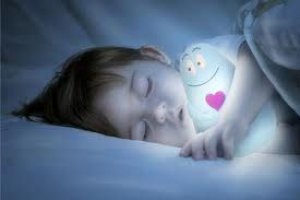
All iLive content is medically reviewed or fact checked to ensure as much factual accuracy as possible.
We have strict sourcing guidelines and only link to reputable media sites, academic research institutions and, whenever possible, medically peer reviewed studies. Note that the numbers in parentheses ([1], [2], etc.) are clickable links to these studies.
If you feel that any of our content is inaccurate, out-of-date, or otherwise questionable, please select it and press Ctrl + Enter.
Insomnia negatively affects the effectiveness of vaccination
Medical expert of the article
Last reviewed: 01.07.2025
 ">
">Poor night's sleep can negatively affect the effectiveness of vaccines, say researchers from the University of California, San Francisco (USA).
The first study conducted outside a "sleep lab" has shown that sleep duration is directly linked to the immune response to vaccines.
The experiment involved 125 people (70 women and 55 men) aged 40 to 60 years. All were non-smokers, in good health, living in Pennsylvania (USA).
Each subject received a standard hepatitis B vaccine in three doses: the second vaccination was given one month after the first, and the third - six months after the second. Antibody levels were measured before the second and third doses, and also six months after the final vaccination. This allowed us to assess whether the vaccine had a "clinically protective effect." In addition, all participants kept a "sleep diary" in which they noted the time they went to bed and woke up, as well as the quality of their sleep. Eighty-eight subjects also wore an actigraph - a watch-like device that attaches to the wrist and accurately measures the time they slept and woke up.

It turned out that those who slept an average of less than six hours at night had antibody levels that were less likely to rise to the required levels, and therefore were 11.5 times less protected by the hepatitis B vaccine compared to those who slept seven or more hours. At the same time, the quality of sleep did not affect the reaction after vaccination. Of the 125 participants, 18 did not receive adequate protection from the vaccine.
Thus, sleep plays an important role in regulating the immune system, and its deficiency can have a detrimental effect on vaccination, the scientists conclude.
Let us remember that insomnia has a negative impact on the body, which consists of the following:
- Impaired mental functioning. Insomnia affects concentration and memory. Long periods of sleep deprivation interfere with daily tasks.
- Stress and depression. Insomnia increases the activity of hormones that cause stress. Thus, lack of sleep directly affects our mood and perception of the world around us.
- Heart disease. Heart disease is directly related to insomnia and nervous system dysfunction. People suffering from chronic forms of insomnia show signs of increased activity of the nervous system and heart, which can put them at risk for cardiovascular disease.
- Headaches: Headaches that occur at night or early in the morning may be related to sleep disorders.


 [
[